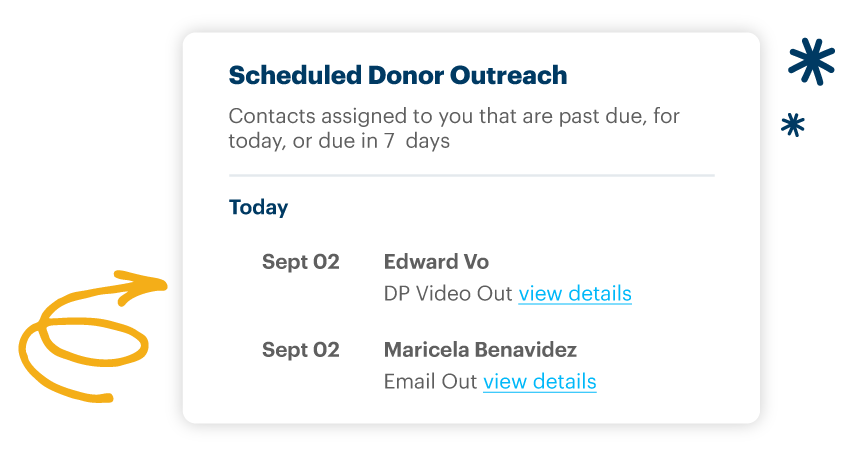It might be too early to start dreaming about twinkly lights, hot cocoa, and warm, fuzzy socks – but it’s definitely not too early to start thinking about your year-end fundraising plan! Among DonorPerfect partners, over a third of all giving happens in the last three months of the year, so it pays to plan ahead and approach the generous year-end giving season with goals that are ambitious and attainable.
We’ve found that fundraising goals like “raise more money than last year” are a bit too vague and don’t inspire your team or your donors to take meaningful action. But when you use your data to inform your goals, create concrete plans to allocate your funds, and renew your strong commitment to your mission, your donors will be excited to give (and give again!).
Create data-driven goals
The best place to start is by looking to the past:
- How much did your year-end campaign raise last year?
- What’s your average over the last five years?
- Were there any messages that resonated with your donors?
- Did you take any risks with your year-end strategy, and did they pay off?
If this is your first time attempting a year-end campaign, you can look to industry averages and apply them to your own fundraising efforts. For example, nonprofits who use DonorPerfect tend to raise 37% of their annual funds in October, November, and December, and you can apply the same percentage to make an educated guess.
It also helps to look back at any unique circumstances from the past year. Did you have any staffing changes, capital campaigns, or other unique events that could impact your end-of-year fundraising results? Have there been any changes to your mission, scope, or your community’s needs? No matter what you set for your year-end goals, you’ll be more likely to accomplish them if you can justify them and get buy-in from your team.
Consider what’s already in your pipeline
When setting your year-end goals, take into account any fundraising activities you already have planned, and estimate how much each will raise.
For major giving, this can mean looking at all of the gift conversations that are already in progress, and determining which you believe are likely to close before December 31. You could include both a stretch goal and an expected gift amount for each donor to provide a range – sometimes your donors surprise you with larger gifts, especially if they’re caught up in the spirit of the season!

For annual giving, events, crowdfunding, and other fundraising activities, you can pull reports using codes from previous years to set benchmarks. Now is a good time to determine if you want to keep the same fundraising schedule as last year, or if you have the bandwidth to add an extra event, email appeal, or call-a-thon to encourage your community to give.

It’s not just about dollars raised
Total dollars raised is a key metric, but there are plenty of other data points that can help you evaluate your fundraising strategy and predict future success.
There’s no “I” in “calendar year-end”
A successful year-end fundraising campaign is a heavy lift, and you don’t have to go it alone! Consider holding a planning meeting in the coming months including your executive director, your board or a board representative, your data administrator, and your fundraising staff to get everyone excited to accomplish your year-end fundraising goals.
Before your planning meeting, pull year-end fundraising data from previous years and come prepared with a goal in mind. It may grow or change over the course of your meeting, but kicking off with an attainable number will help keep you and your team grounded.
During your planning meeting, we recommend reviewing your mission statement and values. In busy fundraising seasons like year-end, it’s easy to fall prey to mission drift, which happens when organizations gradually abandon their original missions, usually in an attempt to solve every problem in their communities. To avoid this, it can help to create clear parameters for how you’ll spend the funds raised from year-end activities, or determine the resources you need to move your specific mission forward.
Finally, think about what success will look like. How will you and your team know you’re succeeding, and how will you celebrate everyone’s effort? With clear direction, a renewed commitment to your mission, and additional incentives for a job well done, your team will be motivated and eager to deliver your best year-end fundraising campaign yet.





